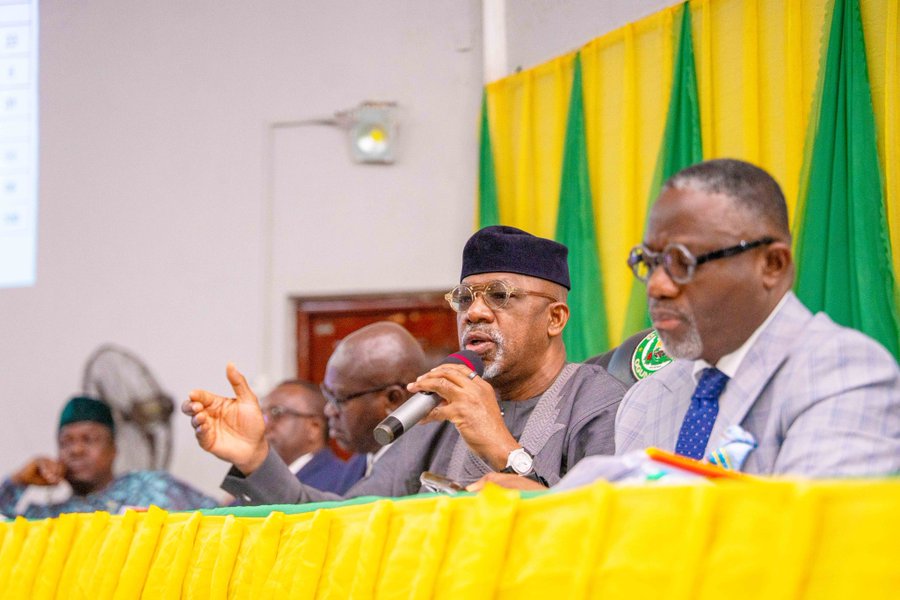The Ogun State Government has ramped up its revenue generation strategy, setting an ambitious target of ₦500 billion in Internally Generated Revenue (IGR) to finance the 2026 fiscal year.
Governor Dapo Abiodun announced the goal yesterday, during the Treasury Board meeting focused on the 2026–2028 Medium-Term Expenditure Framework (MTEF) and the 2026 Budget, held at the Obas Complex, Oke-Mosan, Abeokuta.
The governor declared that, given the state’s status as Nigeria’s industrial epicentre, it has “no business generating less than ₦500 billion a year.”
READ ALSO: “Infrastructure development will reach all parts of Ogun State” – Abiodun reassures residents
He emphasised the state’s potential, which is anchored on its strategic proximity to Lagos State, the nation’s largest economy, and its vast 16,000+ square kilometre landmass.
“This State has no business generating less than ₦500 billion a year, and that has to be our target,” Abiodun stated.
He further projected, “By the time we are leaving in 2027, Ogun State’s revenue should rise to about ₦750 billion.”
To achieve the half-trillion Naira target, the governor issued specific mandates to key revenue-generating agencies.
The Ogun State Internal Revenue Service (OGIRS) was tasked with contributing a significant ₦250 billion to the total IGR.
Other agencies, including the Ogun State Property and Investment Corporation (OPIC), the Bureau of Lands, the Ministry of Education, Science and Technology, and the Ministry of Housing, were directed to drastically scale up their collection efforts.
Abiodun stressed that every Ministry, Department, and Agency (MDA) must play a crucial role, describing them as “pieces of a jigsaw that must fit together to complete the bigger picture.”
He criticised previous administrations for not fully exploiting the state’s potential: “Our comparative advantage was not fully harnessed by previous administrations. Our strength lies in providing what Lagos cannot offer. I expect every MDA to prepare an ambitious budget—aim for the stars, and if we miss, we’ll at least land on the moon.”
In addition to the revenue drive, the governor reiterated his administration’s commitment to urban renewal, specifically addressing the long-deteriorated condition of Kara, near Isheri.
He described the area as an eyesore that cannot be the entry point to the new state.
READ ALSO: Abiodun, Makinde partner to boost food security, regional safety
“There is no better time to act than now—we can’t leave it as an albatross for the next administration,” he affirmed, committing to clearing and redeveloping the corridor.
He disclosed that an inter-ministerial team has been established, comprising officials from the Ministries of Environment, Physical Planning and Urban Development, the Bureau of Lands, and other relevant agencies, to handle the necessary enumeration, compensation, and relocation efforts to facilitate the corridor’s transformation.



